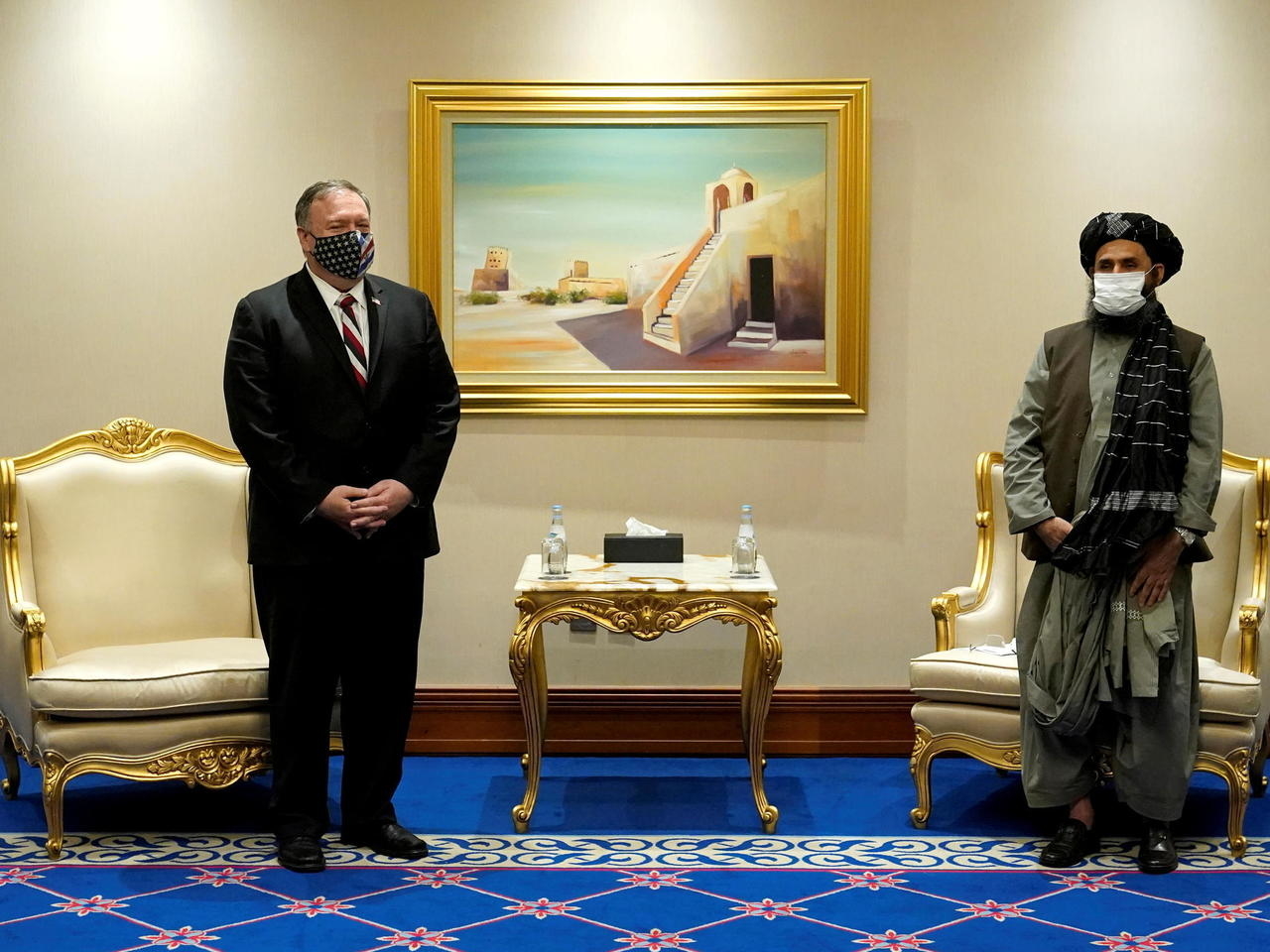Key negotiations among Afghans to decide a future political roadmap face a stalemate amid rise in violence and the Biden administration’s announcement to review the Doha agreement that calls for withdrawal of all foreign forces by May.
Najia Anwari, spokesperson for the Afghan Ministry for Peace, Nadery, a member of the government team have confirmed the Taliban representatives have not returned to the negotiations, blaming them for a stalemate in the process.
The Taliban have not officially commented on remarks by the government’s members. However, a Taliban leader privy to negotia- tions in Qatar says the group has told Kabul the Ashraf Ghani’s administration will have to go for the establishment of an inclusive Islamic government before the announcement of a ceasefire.
“The Islamic Emirate first wants an assurance from the Kabul administration’s team to agree to this proposal as we have been fighting against the current system. But the Kabul team asks us to accept and join the present set-up and declare a cease-fire that we have rejected,” the Taliban leader, who did not want to be identified by name, told The Truth International this week.
“We will accept an inclusive set up with the participation of all Afghans. An Islamic government has also been mentioned in the Doha agreement. We have an outline for the Islamic system and will put the plan on the table at an appropriate time,” he said.
President Ghani refuses to step down and insists he would only hand over power to an elected government after elections.
In a latest development a group mandated by US Congress has recommended that the Biden administration seek an extension of the May troop withdrawal deadline stipulated in the February 2020 US-Taliban deal. The Afghanistan Study Group in a report released in early February said the Taliban had not fulfilled their commitments outlined in the agreement.
Shortly after the group released the report, the Taliban warned if the Doha agreement was breached, it would lead to a dangerous escalation for which the opposing side will be responsible.
“If the Doha agreement is abrogated, it will lead to a major war, the responsibility of which shall fall squarely on the shoulders of America,” said a Taliban commander.
In the wake of an uncertain fate of the Doha agreement, the Taliban political envoys have stepped up jockeying to garner support for their stance if the Biden administration delays troops’ withdrawal. Senior Taliban negotiators travelled to Russia and Iran in the last week of January and held talks with senior officials of both countries including Iranian Foreign Minister Javad Zarif.
Russia and Iran favour Taliban’s call for withdrawal of all foreign forces. Head of the Taliban Qatar office, Mullah Abdul Ghani Baradar, who led the Taliban delega- tion to Iran also visited Turkmenistan in the first week of February. Taliban have planned more visits to several countries including Turkey, according to a Taliban official.
Besides the diplomatic blitz, the Taliban are also discussing military options for the upcoming fighting season that starts in April as the weather changes, according to a Taliban official. He says the Taliban military commission will finalize deploy- ment of military commanders across the country this month.
The Taliban have kept pressure on the Afghan defence forces even in winter which traditionally is not a fighting season. Afghan officials said the Taliban killed 23 security personnel in Kandahar and Faryab provinces on 5 February. Nearly 50 security men and civilians are killed in the Taliban attacks in the country daily, according to officials.
The Biden administration created doubts about the fate of the Doha agreement after US National Security Advisor Jake Sullivan announced that his country plans to revise the agreement with the Afghan Taliban movement.
Sullivan in a phone call with his Afghan counterpart Hamdullah Mohib said that the US would reassess whether the Taliban were living up to their commitments to cut ties with terrorist groups, to reduce violence in Afghanistan, and to engage in meaning- ful negotiations with the Afghan govern- ment and other stakeholders.
Pentagon spokesman John Kirby said last week the Taliban are not meeting promises made in the Doha agreement.
“The Taliban have not met their commitments,” Kirby told reporters in Washington last week, adding that unless the insurgents renounce “terrorism” and stop “violent attacks” on Afghan security forces and the Afghan people, “it’s very hard to see a specific way forward for the negotiated settlement.”
Although the Biden administration has not yet formally announced any change in the Doha accord, statements from senior officials about the review and a possible delay in troops’ withdrawal have prompted the Taliban’s angry reaction. The Afghan government has, however, been upbeat at the expected review of the agreement.
Afghanistan’s first vice-president Amrullah Saleh welcomed the Afghanistan Study Group’s report in a recent tweet. “We highly welcome the report which is more nuanced than the title given to it. It [calls for] wisdom and deliberation, not impulsive and rush decisions,” said Saleh, who has previously complained the US gave concessions to the Taliban in the Doha accord.
Perhaps the saddest aspect of the Afghan war is that it pits Afghans against Afghans. No American and NATO soldier have been killed in a Taliban attack since the signing of the agreement on 29 February 2020.
A new report by the Special Inspector General for Afghanistan Reconstruction (SIGAR) says that the Resolute Support mission in Afghanistan reported 2,586 civilian casualties during the last quarter of the year 2020, which included 810 deaths and 1,776 injuries. This represents a 14 percent decrease over the previous quarter (July – September 2020). Additionally, civilian casualties in 2020 have decreased by approximately 5 percent compared to 2019 and 6 percent compared to 2018.
Despite these modest improvements, this quarter’s civilian casualties remain exceptionally high for the winter months when fighting normally subsides.










